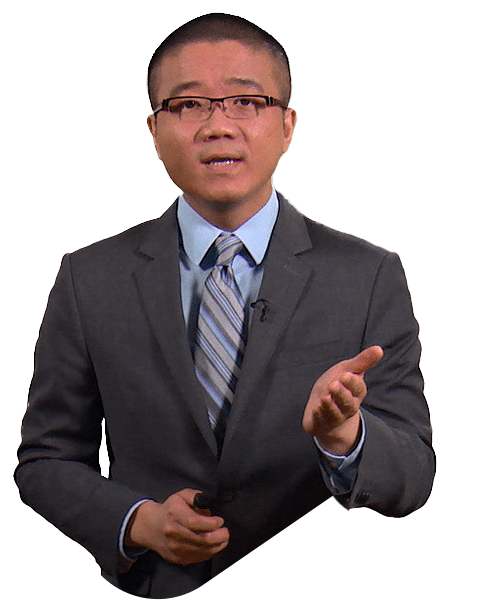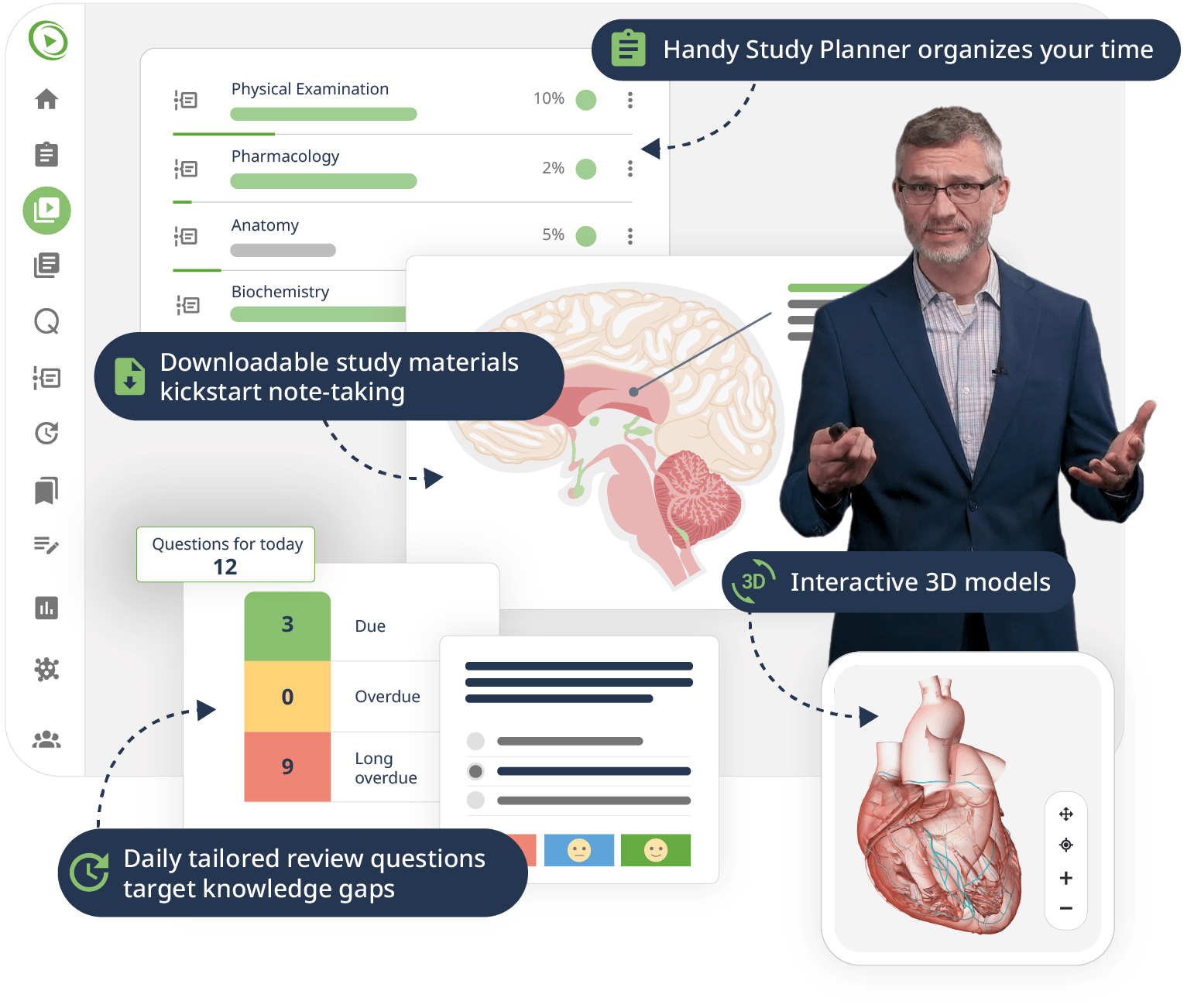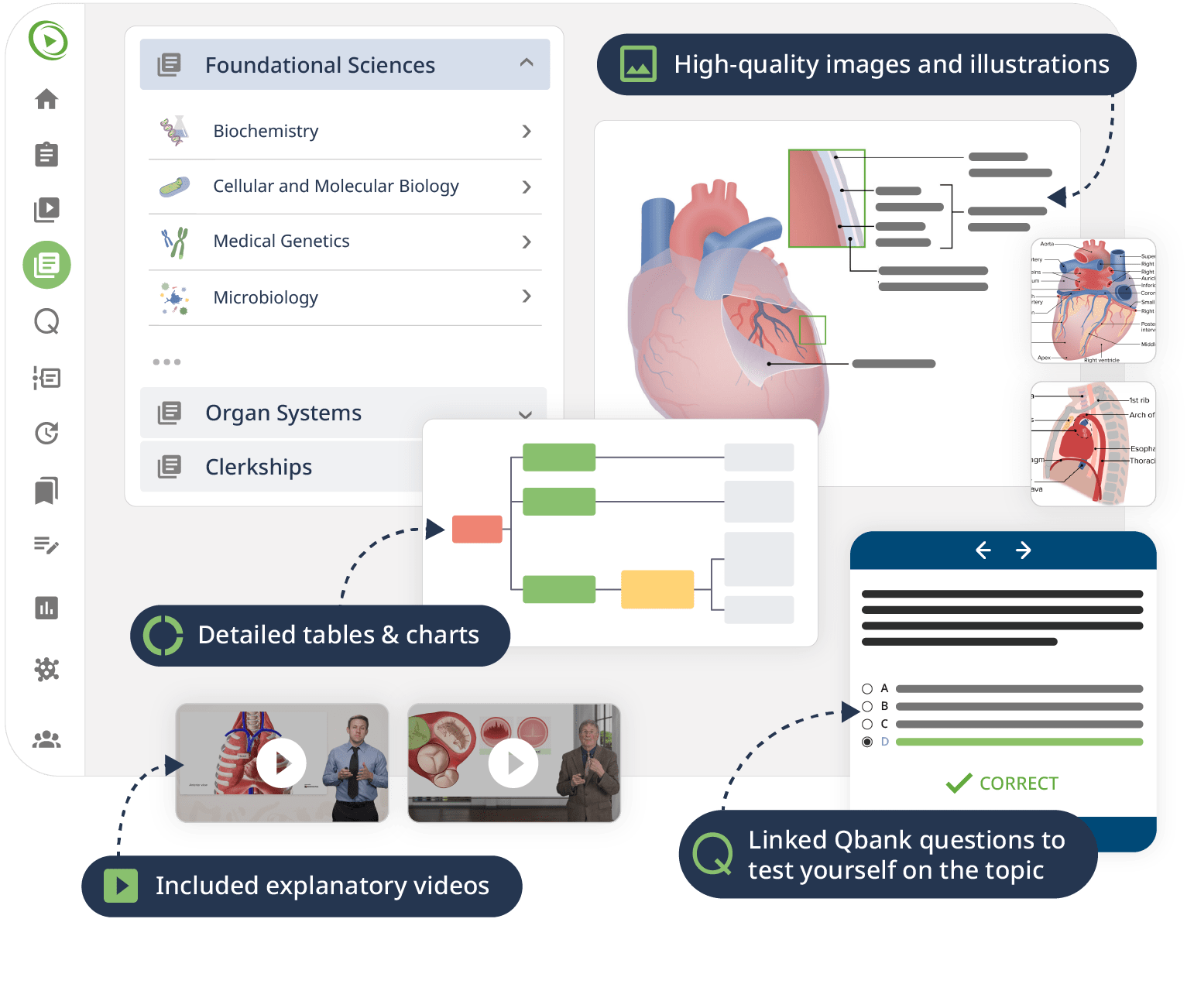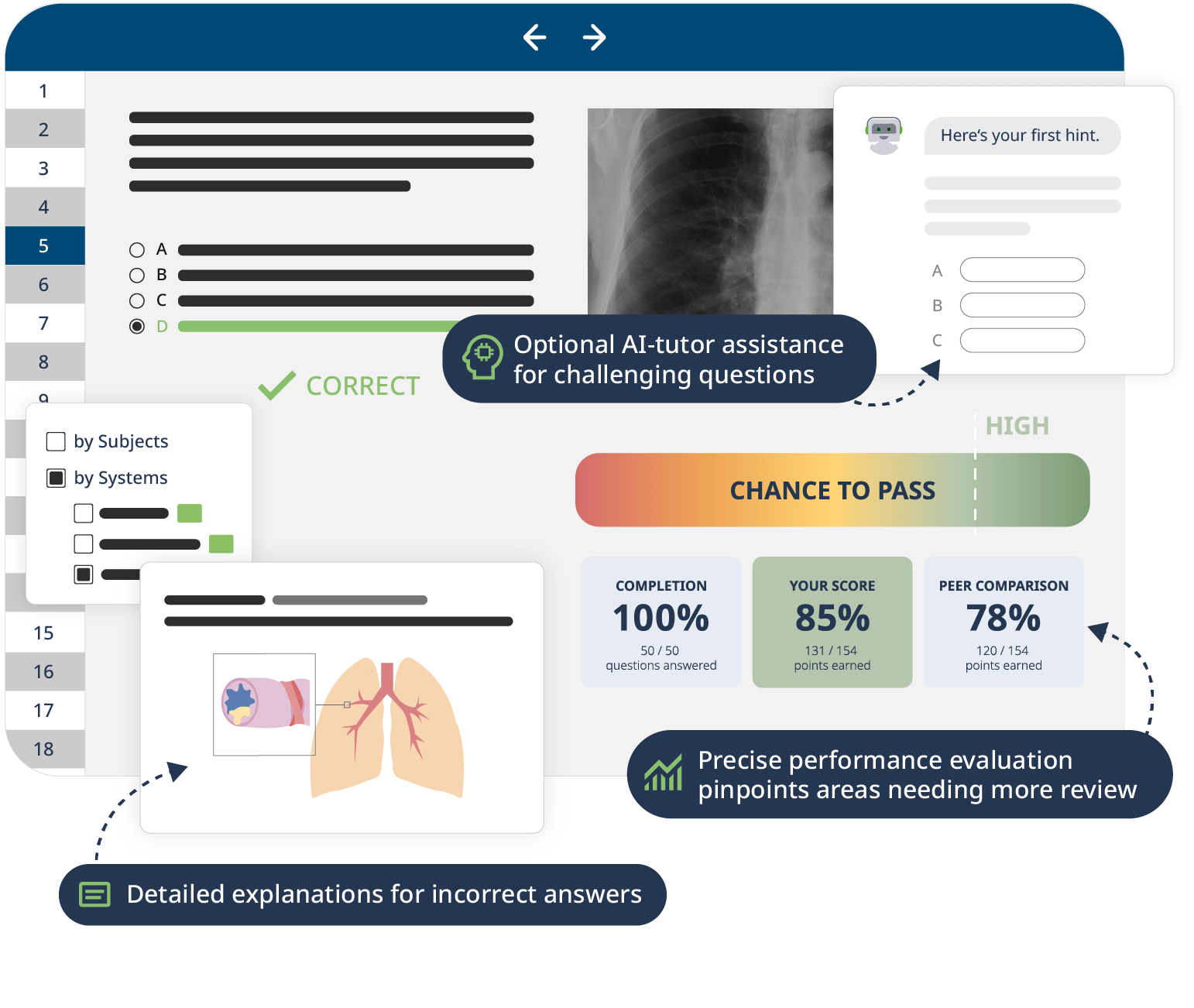Start your online surgery video course
taught by Kevin Pei, MD from the Yale School of Medicine
Surgery is a high-stakes field requiring quick decisions and precise technique. Learning when and how to intervene can be daunting, but may make a big difference in the patient’s outcome.
In this course, you’ll gain hands-on insight into common surgical procedures, from appendectomy to the resection of pheochromocytomas. Over a series of Video Lessons, Dr. Kevin Pei, the Program Director of the General Surgery Residency at Parkview Health, Indiana, guides you through the indications and steps of key surgeries, along with essential pre- and postoperative care techniques. Going further, the course will discuss important critical findings and their management, with special emphasis on trauma and sepsis.
Recall quizzes after each lesson, downloadable study materials, and a USMLE-style Qbank support your learning, designed to boost retention and understanding. By the end of this course, you will have a solid grasp of basic surgical procedures, equipping you to perform well on exams, and confidently walk into the OR for the first time.


















